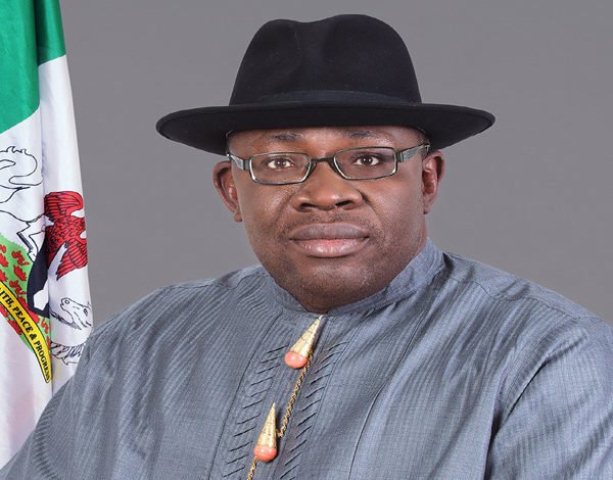* Could it be that the Ameachi’s, Emami’s, Egbo’s etc are the modern day Dore Numas in the present Day Niger Delta?
 |
| Militants |
The constant inequality and politically propelled executive rascality that is prevalent in the Nigerian State against minorities and the Niger Delta region and its people have indeed made the Ijaw man and by extension the Niger Delta man to struggle to renegotiate his existence and survival in the Nigerian State.
The call for egalitarianism, resource control and self determination is an age long agitation as the Nigerian Government and their foreign masters have continued to repudiate the Ijaws from living a worthy and responsible life from time immemorial.
The Willink Commission named after Harry Willink, former Vice Chancellor of Cambridge University and head of a panel commissioned in September, 1957 to look into fears expressed by minority ethnic groups that the colonial imposed political structure would lead to the domination of the minority groups by the majority ethnic groups in the three regions of the federation. The commission was also charged with means of allaying those fears. Till date the commission’s report has been confined to the dustbin of history.
It will be noted that no amount of political gimmicks and military might will forever silence the collective resolve of an oppressed man who’s time of emancipation has been divinely approved. Freedom must be seeked by the oppressed and it is not freely given by the oppressor, it comes with some forms of sacrifices.
The Road to Crisis and Conflict
Historic wrongs and official insensitivity to the rights of the minority people of the Niger Delta throw up again and sustain bloody agitations and insecurity in the region.
Major Isaac Boro writes as follows :
“Today is a great day, not only in your lives, but also in the history of the Niger Delta. Perhaps, it will be the greatest day for a very long time. This is not because we are going to bring the heavens down, but because we are going to demonstrate to the world what and how we feel about oppression. Remember your 70-year-old grandmother who still farms before she eats; remember also your poverty-stricken people; remember, too, your petroleum which is being pumped out daily from your veins; and then fight for your freedom.”
With these electrifying words, 27-year-old Isaac Adaka Boro, general officer commanding, the Niger Delta Volunteer Service, DVS, declared an independent Niger Delta Peoples Republic, NDPR, February 23, 1966, 40 days after the historic January 15 coup. It was 3 pm and the three divisions of the DVS, made up of 159 troops, were going into action at 5 pm with the objective of dislodging the federal police and taking over Yenagoa at 12 midnight. It was code-named “Operation Zero”. It marked the beginning of the “12-Day Revolution” during which Boro, an ex-police inspector, former president of Students’ Union Government of the University of Nigeria, Nsukka, and a fresh graduate of Chemistry, called “the attention of the world to the fact that the inhabitants of the Niger Delta were feeling very uncomfortable” with their fate in Nigeria.That was an understatement for some of the observers of the time. It was the culmination of the injustice, political frustration and suffocation that the Ijaw and other Niger Delta people suffered in an independent Nigeria.
Alot of agitation have over the years greeted the Niger Delta struggle for authenticity in different phases. I will not delve too long on this article by bringing too many actors to the fore via this platform.
At this point, a review of John Pepper Clark’s play entitled “All for Oil” by relating it to the present day agitation and Niger Delta is indeed necessary.
All For Oil
J. P. Clark-Bekederimo celebrates Nigeria’s 40th Independence Anniversary with the performance of his new play, All For Oil, at the Yoruba Tennis Club, Lagos.
After many years of literary hibernation, renown playwright and poet, John Pepper Clark-Bekederimo made a resounding re-entry into the Nigerian literary scene. On 27 September 2000, Clark celebrated the 40th anniversary of Nigeria’s independence with his new play, All For Oil at the Greetings Hall of the Yoruba Tennis Club, Lagos.
Clark-Bekederimo, through the play, tells the story of a violated Niger Delta region and the deprived inhabitants.
The major preoccupation appears an effort to demonstrate a monumental irony. In spite of the 40 years of independence and the attendant extraction of the resources found in the womb of this region, the story remains shaped by deprivation, underdevelopment, environmental devastation, songs of sorrow and stifled lamentations.
Clark-Bekederimo takes a look at historical developments in the then Oil Rivers Protectorate against the background of the activities of the Royal Niger Company. He comes out with a story of ruthless economic rape of the region, across the years.
All For Oil opens with Chief Bekederimo, “the largest trader and middleman for the Royal Niger Company,” in the Oil Rivers Protectorate embroiled in a conversation with Egbe, his friend and brother-in-law, and Fiobode, Egbe’s wife. The three were later joined by Chief Dore Numa, a political collaborator with the British, who accompanied the British in their campaign against King Nana Olomu at Ebrohimi in 1894 and the sacking of Oba Ovoranwen of Benin in 1897.
Through the exchange of invectives between Bekederimo and Dore Numa who has come to accuse his host of stealing the British attention during a reception, the audience gradually gets acquainted with Dore Numa’s personality as a betrayer of his people; who seizes the people’s land and passes it over to the British for selfish rewards. And with this, Clark brings in a recurring theme of betrayal in the present crisis of oil in the region.
The message is that, while the British used Dore Numa, an Itsekiri who is married to an Ijaw woman, against powerful natives during the trade in palm oil, the same strategy is still being employed by the present alliance of the British and the Nigerian government.
Nigeria, in collaboration with the multi-national oil companies, has perpetrated untoward atrocities against the indigenes, in the maintenance of the culture of desperation in the protection of the economic interest which has remained largely the same in the past 100 years.
In the following scene, Clark-Bekederimo is again caught joking through a fundamental issue which is indeed central to the people’s disenchantment with Nigeria. Chief Bekederimo, engrossed in a business chat with Fuludu, his son and heir, raised the issue of the whiteman, a buyer, who arrogates, to himself, the right to determine the prices at which the seller should sell his product. Again Bekederimo’s poignant comment on the whiteman’s overwhelming monopoly in the palm oil trade is reminiscent of the consternation of the Niger-Delta people on the present oil crisis, in which the Nigerian government determines what should be given to the Niger Delta people; while the lion share goes into building new cities in the dry aridness of the Sahara, and the maintenance of old ones, far away from the frontiers of the Niger-Delta. Clark seems to be making some commentaries on the much ado about 13 per cent derivation, the Niger Delta Development Commission in consonance with Ken Saro-wiwa’s hypothesis of a man who steals another person’s shirt, and expects him to be grateful because he is returning some of the buttons to him.
As the scenes flash by, Chief Bekederimo and his lawyer, Egerton Eagleton, went to the office of the Governor-General to complain about the nefarious activities of Dore Numa, who has connived with the British in a land racket, against the Ogbe-Ijoh people, the Agbassas, the Urhobos of Warri and his Itsekiri brothers.
The audience see a shocked Bekederimo, protesting having any audience with Col. Moorhouse, the acting Governor-General on behalf of Lord Lugard. Through Bekederimo’s brief complaints about Col. Moorhouse, the audience, is again let in to the privileged information that Moorhouse is not any better than Dore Numa and could even be worse.
However, a reluctant Bekederimo, is convinced, with entreaties from his lawyer to make his case before Col. Moorhouse, in accordance with the law, while Moorhouse, on his part reassures the agitated chief that action would be taken on his case. He specifically promised him “British Justice.” But the theme of vicious deception and insincerity against the champions of the peoples cause became poignant when Bekederimo’s wife, Mitovwodo, alerted her shocked husband that Col. Moorhouse visited the region, to see Dore Numa, without even dropping a reference to Bekederimo.We see a Bekederimo completely aghast at Moorhouse’s deception, and insincerity, in spite of his loud emphasis on “British Justice,” which he promised to offer. Even here, Clark-Bekederimo makes a clear castigation of the Nigerian ruling class, in that just as it happened in the colonial period, the interest in crude oil does not create room for the ethos of judicial fairness and equity.
In the concluding scene of the play, we see Bekederimo on his sick bed being attended to by his wife, Mitovwodo. His spirit is low, and in spite of his wife’s reassuring and endearing words, which were intended to fortify him for the many battles ahead, the chief queries in frustration, “what is there to live for in this world,” in the face of the travails of his people. As if complementing Bekederimo’s summation of the harsh realities of existence in the Niger Delta, Mitovwodo’s lamentation, remains a gripping portrayal of the sorry state of the Niger Delta. “In day light, we are in darkness,” the woman laments.
But Clark-Bekederimo, while accepting that it is not yet Uhuru in the Niger Delta’s struggle for a fair share of the petrol dollars received from the crude oil that is extracted in abundance from the bowels of the region, further cast doubts on the genuineness of the Nigeria dream, which seems to be built on a foundation of mischief.
The curtain falls on the play, with a visit to Bekederimo by a wizard, who predicted that, death is far from Bekederimo because of the war he has to wage for the interest of the people; promising that his exploits would be appreciated on the court of posterity. “Your song would always go on as long as there are voices to sing.” And on this note, Clark-Bekederimo’s narrative draws to a halt, with a bold question mark, on the status of Nigeria as a federation.
The scepticism of the Niger Delta people, over the fraudulence in the Nigeria unity is re-echoed, in Bekederimo’s and Mitovwodo’s last and penetrating commentary- “We hope this prophesy would put oil into our lamp in the night market, the white man calls Nigeria.”
In All For Oil, Clark-Bekederimo’s biographical drama, the playwright tapped from his knowledge of the historical antecedents of the trade in palm oil, in the colonial period to make a vitriolic castigation of the role of the Nigerian ruling class, in the present crisis of oil in the Niger Delta, and Nigeria. Thus the play is the playwright’s bold attempt to take a firm position in the nationality question, which is fronted by Clark’s proclaimed belief that “we should sit together and decide the conditions of our living together.
Much has been said as the bottom line is that our unity as a people especially in trying times like this should be non negotiable. Prof. Dime once said, ” if spiders webs unite, they can tie up a lion”. This is indeed a lesson we must all learn from.
Support Quality Journalism in the Niger Delta Region
Join us in our mission to bring development journalism, cultural preservation, and environmental awareness to the forefront. Your contribution makes a difference in the lives of the people of the Niger Delta. Donate today and be a part of the change!








Leave feedback about this
You must be logged in to post a comment.